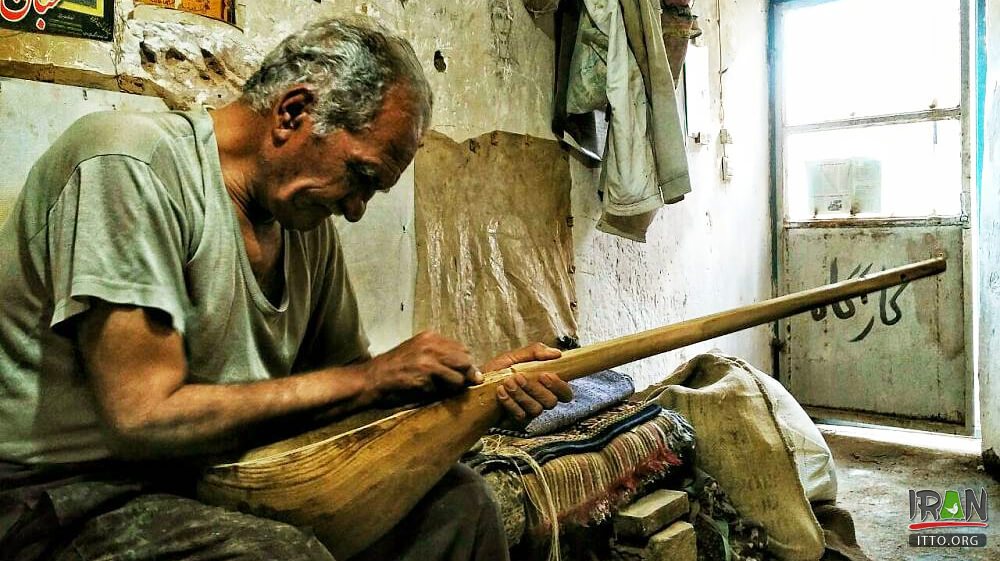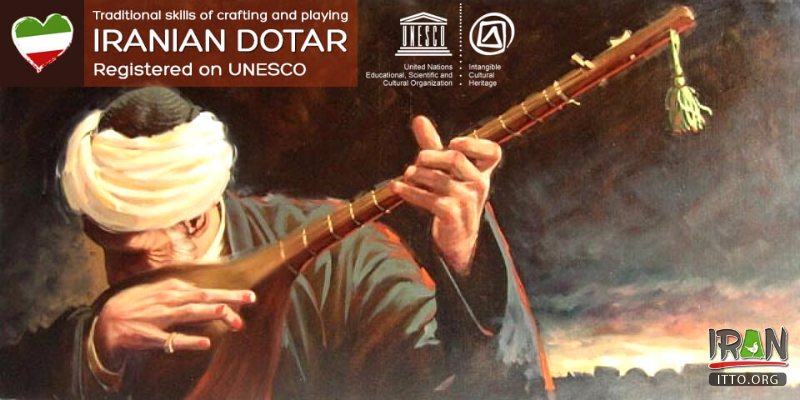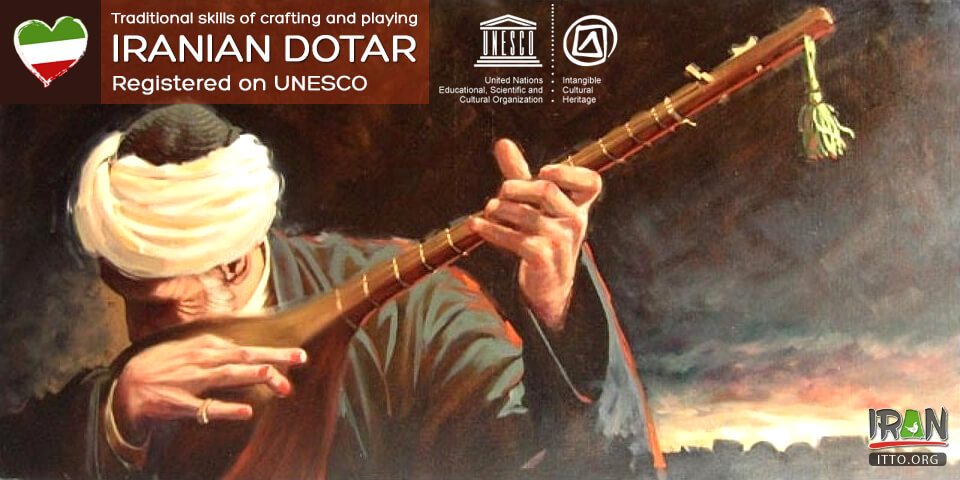At the 14th annual meeting of the Intergovernmental Committee for the Safeguarding of the Intangible Cultural Heritage in Bogotá, Colombia, Iranian Dotar was registered on the Representative List of the Intangible Cultural Heritage of Humanity.
Dotar (meaning “two strings” in Persian) is a folkloric plucked musical instrument with a pear-shaped bow crafted with dried wood or mulberry tree, a neck made of apricot or walnut wood, and two strings. Some believe one string is male and functions as the accord, while the other is female, playing the main melody.
Performers play the dotar on important social and cultural occasions such as weddings, parties, celebrations and ritual ceremonies. Bearers and practitioners are mostly farmers, including male crafters and players and female players.

Master Khoddam Ahmadi in his Dotār crafting workshop, Torbat-e Jam, Razavi Khorasan Province
In recent decades, it has also been played in local, regional, national and international festivals. While playing, the players recount epic, historical, lyric, moral and gnostic narrations that are central to their ethnic history, pride and identity.
According to the UN cultural body, traditional knowledge relating to crafting and playing the dotar is passed on informally through the master-student method, and the element is also present in local oral and written literature, which reflects the history and background of the bearers. The element fosters peaceful co-existence, mutual respect and understanding both among different communities and with neighboring countries.



